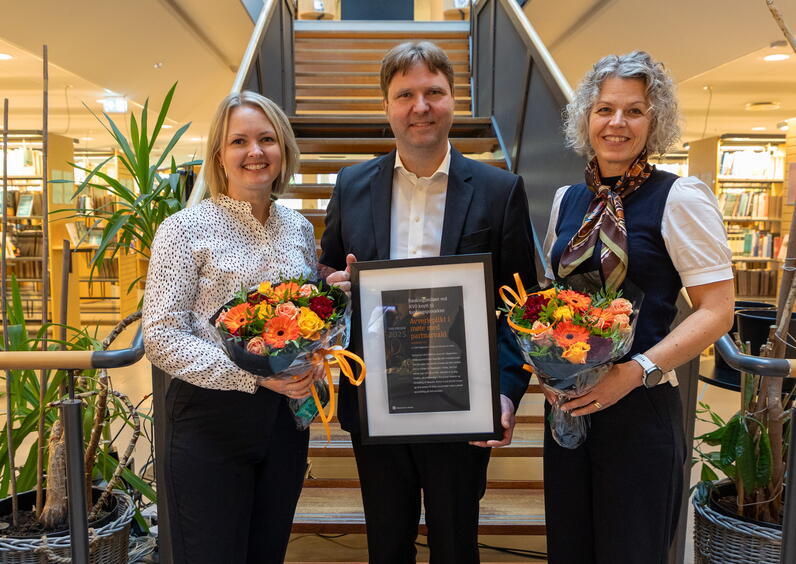Awareness of Mandatory Reporting of Intimate Partner Violence (MR-IPV)
A new study examines the awareness of MR-IPV among service providers, victims, and perpetrators of IPV in a Norwegian context.

The authors of the article (from top left): Anita Dyb Linge, Kjartan Leer-Salvesen, Silje Louise Dahl, Susanne Tilke Thon Kristiansen, and Solveig Karin Bø Vatnar.
In Norway, all adults (i.e., individuals aged 15 years or above), have a duty to prevent severe or persistent intimate partner violence (IPV) by reporting it to the police or averting it “by other means”. Previous research indicates that when IPV is suspected, service providers’ responses vary depending on their awareness of MR requirements (e.g., Cho et al., 2015; Everett et al., 2013; Pratt-Eriksson et al., 2014; Sawyer et al., 2014; Vatnar et al., 2022). Therefore, awareness of mandatory reporting of intimate partner violence (MR-IPV) is important for preventing and stopping IPV (e.g., Cho et al., 2015; Everett et al., 2013; Pratt-Eriksson et al., 2014; Sawyer et al., 2014; Vatnar et al., 2022).
In this study, we examined the awareness of MR-IPV among service providers, victims, and perpetrators of IPV in a Norwegian context. We interviewed 59 service providers (employees at emergency rooms/assault centers, police, child welfare services, domestic violence shelters, and treatment services for violent behavior), 10 individuals who had been subjected to violence, and eight who had perpetrated violence.
Our findings indicated that many victims and perpetrators of IPV, despite extensive contact with service providers, were unaware of MR-IPV. Those who were aware of MR-IPV tended to withhold information about ongoing violence out of fear of the consequences if the violence were reported. The majority of service providers viewed the duty to avert as part of their professional role rather than an individual responsibility, which may result in not reporting IPV and relying on colleagues and leaders to do so. The results also show that police officers and health care staff were more knowledgeable about their professional guidelines than about MR-IPV, which they found complex and challenging to enact.
Variation in awareness of MR-IPV can have practical consequences, such as a lack of reporting of IPV and increased risk of harm and trauma for victims of IPV. When victims and perpetrators of IPV withhold information about ongoing violence, it can undermine service providers' ability to comply with the law and intervene in cases of IPV.
Given the findings of the present study, it may be beneficial to increase awareness of MR-IPV among both the general population and professionals in Norway. One solution could be to include the topic of Penal Code §196 in the education of service providers when they are taught about their duty of confidentiality.
You can read more about awareness of MR-IPV in the article: Awareness of Mandatory Reporting of Intimate-Partner Violence: A Thematic Analysis of the Perspectives of Help-Seeking Victims and Perpetrators and Service Providers in Norway | Journal of Family Violence. The authors of the article are Anita Dyb Linge, Kjartan Leer-Salvesen, Silje Louise Dahl, Susanne Tilke Thon Kristiansen, and Solveig Karin Bø Vatnar.






